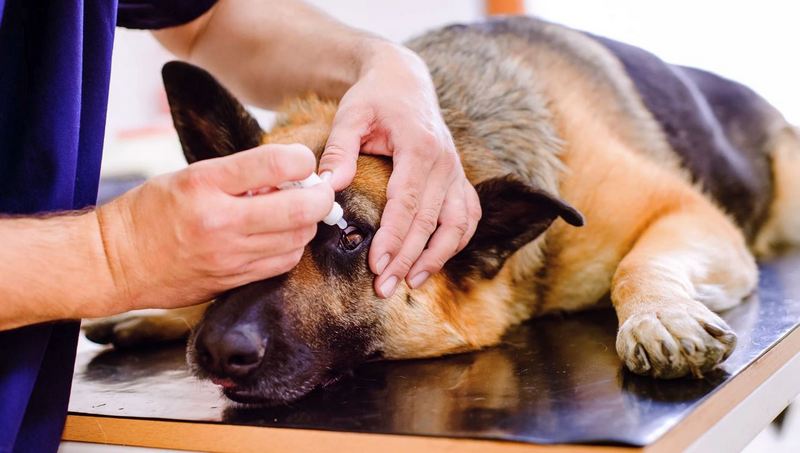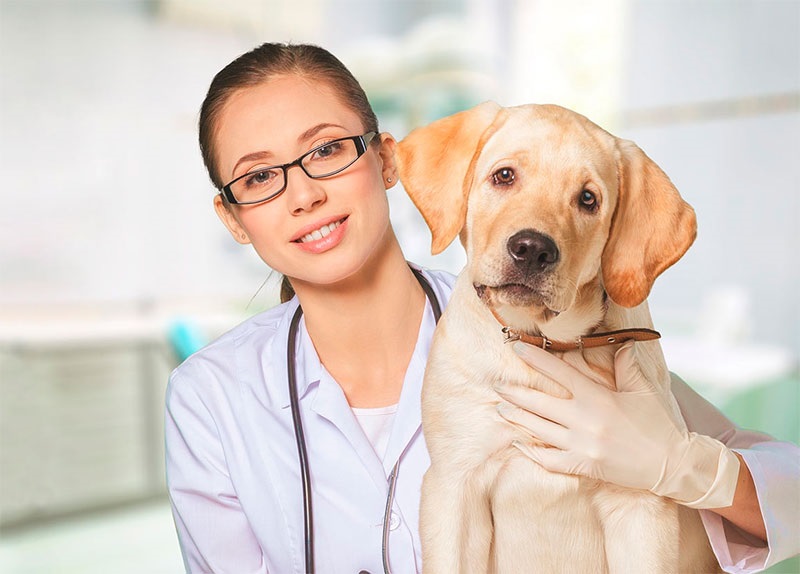Coronavirus dogs – symptoms, treatment, tests and vaccinations
 All the necessary information about the coronavirus of dogs: how to diagnose, symptoms, what tests to take, whether vaccination is necessary for this disease
All the necessary information about the coronavirus of dogs: how to diagnose, symptoms, what tests to take, whether vaccination is necessary for this disease
What is dog coronavirosis?
Coronavirus is an infection affecting the intestines of dogs. Coronavirus does not cause severe harm to the animal, although it can cause some discomfort in the dog’s intestines. The name of the virus was due to its type under an electron microscope – it looks like a metal ring with teeth, similar to a crown.
How is the coronavirus transmitted?
The most common route of transmission of coronavirosis is contact with infected feces. It is also possible infection through the bowls, of which the sick dog had previously eaten / drank and with the direct contact of a sick and healthy dog.
Several dogs in the same room and poor sanitation of premises / walkers increase the risk of transmission of the disease.
The incubation period from infection to the first signs – 1-4 days.
The disease duration is 2-10 days in most dogs.
Secondary infection in the form of bacteria, parasites and other viruses can develop against the background of coronavirosis and prolong its duration.
Dogs after recovery remain carriers of the virus up to 6 months.
Symptoms of dog coronavirosis
In most cases, the symptoms are subclinical, i.e. almost invisible. In rare cases, a coronavirus can cause more severe symptoms in puppies.
The most common symptoms of coronavirus:
Diarrhea
Lethargy
Loss of appetite
Liquid, fetid stools with an orange tint, sometimes with blood or mucus. If a puppy has misinfection (for example, a coronavirus and a parvovirus at the same time), the disease is usually more severe.
What can confuse dogs coronavirus?
There are many causes of diarrhea in dogs. Severe coronavirus can be confused with canine parvovirus enteritis, and they can infect the dog at the same time. We strongly recommend that you contact a veterinary clinic if diarrhea lasts more than 24 hours in a dog or occurs on the background of lethargy or lack of appetite. If you are in the North-East Administrative District of Moscow, you can contact the Constellation veterinary clinic around the clock.
How to treat canine coronavirus?
There is no specific treatment for coronavirosis.
Antibiotics are not effective against viruses, but can help get rid of secondary bacterial infections!
A hungry diet of 24 hours and feeding in the smallest portions of food is the only treatment. Dehydration may require intravenous infusions (droppers). Early treatment is the key to success in treating severe cases.
What vaccines are used to protect against coronavirus?
Duramun and Multikan are used in Russia, however, according to the international veterinary guidelines (WSAVA), vaccination against canine coronavirus is not recommended. This is due to the low evidence base of efficacy of vaccines against coronavirosis.
In addition, the coronavirus affects the dead cells of the intestinal epithelium (which is why the symptoms of the disease are usually subtle, the infection does not cause serious harm to the animal), while the parovirus multiplies in young cells of the dividing epithelium and the consequences of infection can be catastrophic. That is why the puppy in the first place needs maximum protection against parvoviral enteritis.



